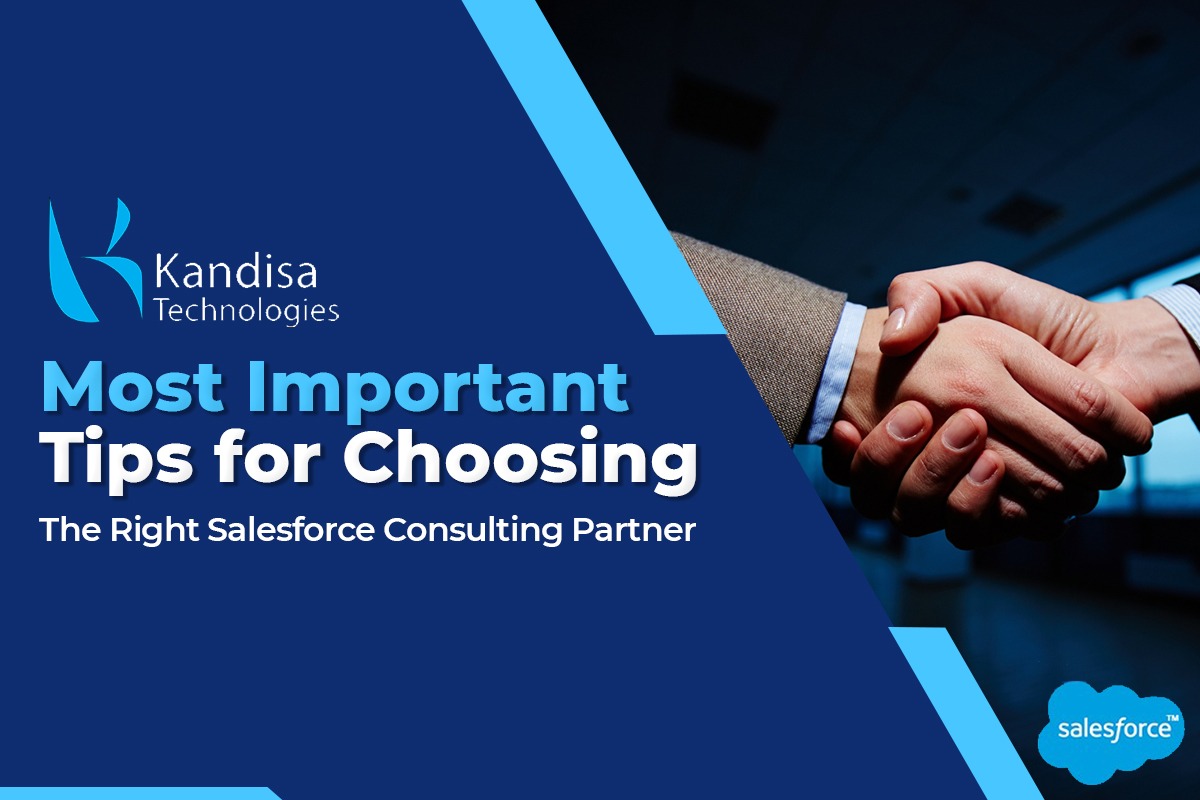Factors To Consider While Choosing the Right Cloud Platform For Your Business

Businesses are increasingly turning to technological advancements to stay ahead of the curve. Cloud computing is a prime example. As organizations scale, the need for accessible and adaptable solutions becomes paramount. Cloud platforms are emerging as the answer, offering a robust foundation for business operations.
The projected continued growth and importance of cloud platforms highlight the critical need for businesses to choose the right provider. But what exactly are cloud platforms? In essence, they're external services that manage your IT infrastructure—servers, software, storage, and more. They take care of everything from hosting and securing your data to ongoing maintenance, making them a vital cog in the modern business machine.
However, data security remains a top concern for many organizations. Therefore, selecting the most suitable cloud management platform becomes even more crucial.
Before diving into the selection process, let's clarify the role of a cloud service provider (CSP). A CSP is a company that owns and operates the cloud platform, offering businesses the resources and services they need. In the next section, we'll explore how to choose a suitable CSP.
What is a Cloud Platform?
Simply put, it's a service offered by a third-party provider that manages your entire IT infrastructure – from servers and storage to software and networking. There are a number of leading cloud service providers for example Microsoft Azure, Amazon Web Services (AWS), Salesforce and Google Cloud Platform that offer a range of services categorized into three main models:
-
Infrastructure as a Service (IaaS): This provides the most basic level of control, essentially renting out virtual servers, storage, and networking resources. You have complete control over the operating system and applications you install.
-
Platform as a Service (PaaS): This offers a pre-configured platform for building and deploying applications. PaaS handles the underlying infrastructure, allowing you to focus on developing and managing your applications.
-
Software as a Service (SaaS): This delivers software applications directly over the internet, eliminating the need for local installations. Think of popular tools like Gmail or Salesforce, you can ask for a salesforce marketing cloud consultant and get complete understanding and assistance.
What to Consider While Choosing the Cloud Platform Service for the Business?
Every business is unique, with its own goals, operations, and sensitive data. There's no magic bullet when it comes to cloud service providers – a "one-size-fits-all" solution simply doesn't exist. The key to success lies in selecting a provider that seamlessly integrates with your specific business needs.
Here's a breakdown of key criteria to consider when making this critical decision:
Cloud Platform Technology
Cloud service providers offer distinct features and functionalities. Compatibility is paramount. You need to ensure your current business environment aligns seamlessly with the provider's technology and service offerings. Here are some questions to ask yourself:
-
Alignment with Operations: Does the cloud platform's architecture, services, and security standards support your business's operational and management preferences?
-
Migration Assistance: Does the provider offer migration services to ease the transition from your existing infrastructure?
-
Proven Track Record: Can they provide examples of similar deployments and their performance metrics?
-
Future-Proofing: How does the provider plan to address potential shortcomings and continuously improve their services?
Service Roadmap
Just as a strong backup plan is essential, understanding the provider's service roadmap is crucial. This roadmap outlines the provider's plans for innovation and service expansion. By analyzing their complete service portfolio, you can ensure they offer solutions that will scale alongside your business. Here are some key questions to explore:
-
Innovation Focus: What is the provider's innovation roadmap? How do they plan to stay ahead of the curve and ensure your business always has access to cutting-edge services?
-
Long-Term Vision Alignment: Does the provider's long-term vision align with your own business goals and aspirations?
Cloud Platform Security
For any organization, data security is paramount. The chosen cloud platform must provide robust security features to ensure smooth operation and protect your sensitive information. Look for features like data encryption, secure backups, disaster recovery solutions, compliance certifications, granular access controls, and adherence to industry regulations like GDPR (General Data Protection Regulation) and HIPAA (Health Insurance Portability and Accountability Act). Remember, compliance with relevant regulations is vital for your business's overall health.
Cost Considerations
Cloud services offer various pricing models – upfront payments, pay-as-you-go options, and potential discounts based on volume or reservations. It's crucial to understand these structures and how they align with your projected usage. While some platforms might entice you with introductory offers, be wary of hidden costs or potential price hikes down the line. Carefully evaluate the total cost of ownership, considering not just the base price but also egress fees, support costs, and potential future adjustments.
Business Compatibility
Compatibility between your business operations and the chosen cloud platform is paramount. Cloud adoption often involves migrating significant amounts of data, so ensuring a smooth transition is critical. Assess the platform's capabilities for storing, managing, and integrating with your existing systems. Compatibility issues can lead to disruptions, delays, and even financial losses, so prioritize a platform that seamlessly aligns with your current and future business needs.
Scalability for Future Growth
Your business is built to grow, and your cloud platform should adapt alongside you. Evaluate the platform's cloud architecture – can it support your current and future needs? Consider advancements like serverless options, microservices, and multi-cloud capabilities. The chosen platform should be able to scale and evolve in tandem with your business aspirations.
Support and Service Level Agreements (SLAs)
Transparency is key. Cloud providers should clearly outline the services they offer and their support structure. A comprehensive service level agreement (SLA) should be in place, detailing response times, resolution procedures, and actions taken in case of service disruptions. A robust support system ensures minimal downtime and a smooth operational experience.
Migration Support, Vendor Lock-in, and Exit Strategies
Vendor lock-in can become a hurdle when considering future migrations. This occurs when a platform offers unique features unavailable elsewhere, potentially making it difficult to switch providers. Ensure the platform offers seamless data migration capabilities and avoids vendor lock-in whenever possible. Evaluate their exit support options – can you easily transition to another platform if needed? Having a clear exit strategy protects your business in the long run.
By carefully considering these factors, you can make an informed decision that will lay the groundwork for your business's successful and cost-effective cloud journey.
Factors to Consider when Choosing a Cloud Platform
The cloud computing revolution has transformed how businesses operate. Today, a staggering 96% of organizations leverage cloud services in some form, with many adopting multi-cloud strategies for optimal flexibility. However, selecting one of the best cloud platforms for business is crucial for maximizing the benefits of cloud computing. Here are vital factors to consider when making this critical decision:
-
Aligning with Business Goals
The cloud isn't a one-size-fits-all solution. Clearly define your business objectives. Are you aiming to streamline operations, enhance collaboration, or scale resources on demand? Aligning your cloud platform with these goals ensures it empowers your specific needs.
-
Cost Optimization
Cost management is a top concern for cloud users. Carefully evaluate the pricing structures offered by different providers. Consider factors like pay-as-you-go models, resource utilization costs, and potential discounts for sustained usage. Striking a balance between affordability and features is critical.
-
Security and Compliance
Security breaches can have devastating consequences. Choose a cloud platform with robust security measures, including data encryption, access controls, and disaster recovery plans. Furthermore, ensure the platform adheres to relevant industry regulations and compliance standards specific to your data.
-
Scalability for Growth
Your business needs are dynamic. Look for a cloud platform that scales seamlessly to accommodate future growth. The platform should allow you to easily add or remove resources as needed, ensuring you only pay for what you use.
-
Integration with Existing Infrastructure
A smooth transition to the cloud hinges on the platform's ability to integrate with your existing systems and applications. Prioritize platforms offering seamless integration capabilities to minimize disruption and ensure a positive user experience.
-
Technical Expertise and Support:
Cloud technology can be complex. Evaluate the level of technical expertise available from potential cloud providers. Reliable customer support is essential for troubleshooting issues and ensuring smooth operations. Look for comprehensive documentation, training resources, and readily available support options to navigate any challenges that might arise.
By carefully considering these factors, you can make an informed decision when choosing a cloud platform.
Final Words
Selecting a cloud management platform (CMP) involves a comprehensive evaluation process. Beyond the "hard" factors like features and compliance certifications, consider "soft" aspects such as user experience and vendor support standards. Don't forget practical considerations like cost structures and contract terms.
By carefully weighing all these factors, you can ensure the chosen CMP seamlessly integrates with your existing infrastructure and workflows, effectively supporting your organization's cloud computing needs. Conduct thorough research and consider partnering with a trusted technology advisor to navigate the selection process.
What's Your Reaction?








































